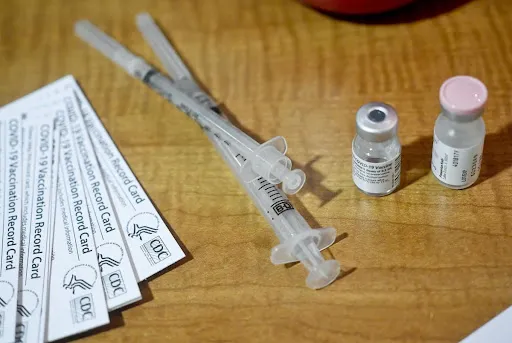The CACTI Blog: COVID-19, Limitations of the Healthcare System and its Treatment of the Disabled Community

By Laasya Vallabhaneni, 2020-2021 Policy Fellow
During the 2020-2021 school year, I had the experience of being a disability policy fellow with the Sonoran Center for Excellence in Disabilities. I had the opportunity to attend different seminars discussing current disability policy as well as listening to stories about the experience of disabled individuals’ interaction with law. I also researched current policies that protect disabled individuals both on the state level and national level and learned about different opportunities to lobby for policies which I felt were necessary. We had multiple speakers discuss how policy works and how the individual can influence policy reform. By the end, I’d conducted research on sexual abuse in disabled geriatric populations and compiled a policy brief with recommendations to decrease instances of sexual abuse in assisted nursing homes and other residential institutions. More specifically, the isolation of disabled elders in nursing homes due to COVID-19 was emphasized. COVID-19 has been difficult for everyone, but more so the disabled population because of a lack of access to proper resources and the heightened concern of health issues.
Currently, the biggest risk factor for COVID-19 is age, but a study found that intellectual disability is the greatest risk factor after age.1 This means that geriatric disabled populations are much more likely to get infected with COVID-19 than their counterparts. Not only this, but because elder disabled individuals are more likely to live at nursing or residential homes, they are exposed to a larger number of individuals, meaning a larger risk for COVID-19. Luckily, the vaccinations for COVID by Pfizer, Moderna and Johnson & Johnson are available for disabled individuals to protect themselves from COVID. However, the issue lies in the access to the vaccine. Often, individuals with both intellectual/developmental and physical disabilities have a harder time accessing health benefits such as the vaccine. This could be because it might be difficult to find information about eligibility and having a hard time scheduling the vaccine. One study found that 1 in 4 older adults lack access to a computer or internet service to get help about vaccines. 2 In addition, some have difficulty getting accessible transportation or even navigating the vaccination site. 2 Lastly, many individuals with disability who reside in nursing homes or residential homes are unable to leave their home and require in-home vaccination, which increases the difficulty in accessing the vaccine. 2

In 2021, the Biden Administration announced their plan to increase access to the COVID-19 vaccine. This came as good news for those with disabilities because the U.S Department of Health and Human Services has partnered with the Centers for Disease Control and Prevention, as well as the Administration for Community Living to provide almost $100 million for vaccine mobilization for older adults and individuals with disabilities. This applied to not only elders with disabilities, but all age groups with disabilities. $5 million from this grant went to national hotlines to assist elders with disabilities to register them for the vaccine and connecting disabled individuals with local disability and aging agencies to provide services and supports. 3
Although COVID-19 is currently the pressing issue, the lack of healthcare access has been highlighted by the pandemic, specifically for individuals with disabilities. The disability community needs to stick together to fight for their rights regarding healthcare, education, etc. Patients with disabilities should be a priority and should have equal access to the healthcare system, even outside the context of COVID-19.
- Gleason, Jonathan, et al. “The Devastating Impact of Covid-19 on Individuals with Intellectual Disabilities in the United States.” NEJM Catalyst Innovations in Care Delivery, Mar. 2021, catalyst.nejm.org/doi/full/10.1056/CAT.21.0051.
- MaryBeth Musumeci, and Priya Chidambaram. “COVID-19 Vaccine Access for People with Disabilities.” KFF, 3 Mar. 2021, www.kff.org/medicaid/issue-brief/covid-19-vaccine-access-for-people-wit…;
- “HHS to Expand Access to COVID-19 Vaccines for Older Adults and People with Disabilities.” HHS.gov, 29 Mar. 2021, www.hhs.gov/about/news/2021/03/29/hhs-to-expand-access-to-covid-19-vacc….
The CACTI Blog features the voices of our interdisciplinary trainees and Community Advisory Council members as they highlight diverse images of people with disabilities and provide community information and advocacy on disability issues. Check Out The CACTI Blog
